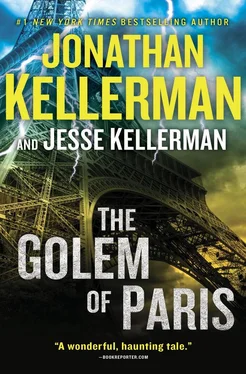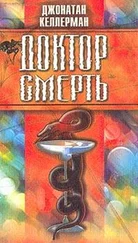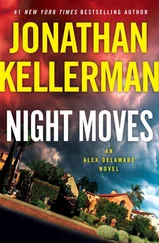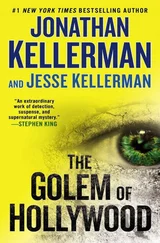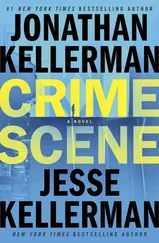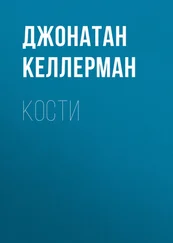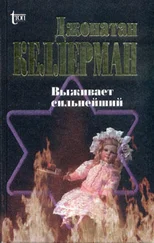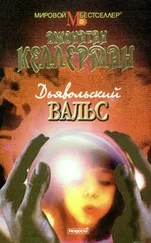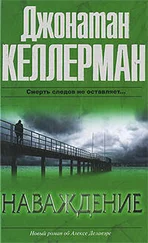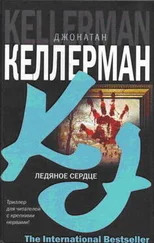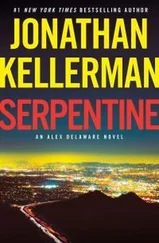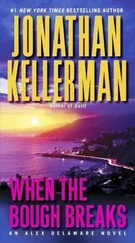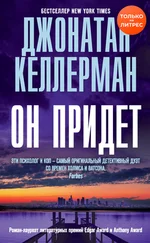“Thanks,” he said. “I was away on a case. What’s up?”
“You remember about this division, ÚDV.”
“For crimes committed under Communism.”
“Yes. They have a big building, it’s like a library. I made searches for the things you said. Arkady Tremsin, in the computer there is nothing. But many files are missing.”
“Purged.”
“Yes, or someone put in the wrong place. Or there is a file, but the names are black. Bohnice hospital, the material is large, many boxes. It will take me too long, so I started to read the murders from these years.” Jan paused. “Jacob, I was surprised.”
Marie Lasková, thirty-seven.
Her six-year-old son, Daniel.
Shot to death.
Their eyelids removed. Their bodies propped.
Marie had recently been discharged from Bohnice.
“They are behind the synagogue,” Jan said. “In the same place with the head from last time.”
Jacob said, “Unsolved.”
“Yes. But wait, it’s getting more weird. Any Czech person can request to look at the files. This is so people can know the truth. When you ask, you must put an application with name and birth number. This file, there is only one person who wanted it,” Jan said, “Peter Wichs, this Jewish guy works at the synagogue. I thought, ah, okay, he’s in charge of security, it’s important to him. But the murder, it’s in 1982. This guy now, I remember him, he is the middle of forties, so then he was a boy.”
“Do you know when he requested the file?”
“First time is nine March, two thousand. Then again, twenty June.”
“Same year.”
“Yes, two thousand.”
The date a branding iron.
June 20, 2000.
Three weeks before Bina’s second suicide attempt.
He said, “Are there photos in the file? Of the victims?”
“Yes, some. I can send copies.”
“Please. Thank you.”
“Okay,” Jan said. “Something’s wrong?”
“... no.” A beat. “What are the nicknames for someone named Marie?”
“Nickname?”
“What you call someone for short. For my name, it’s Jake, or Jack.”
“Ah. Okay. Marie could also be Marča, Mařenka, Máňa, Manka—”
“Micah?” Jacob asked.
“Yes, this too.”
“Can you spell it?”
“M-a-j-k-a. It’s important?”
She screamed that name. She was screaming it in her sleep.
Jacob told him about Dmitri Molchanov.
Jan said, “It’s him? Not Tremsin?”
“For the murders, yes.”
Jan said, “Where is Molchanov?”
“Dead.”
“Ah,” Jan said. “Good.”
Before they hung up, Jacob thanked him again and promised him a third beer.
His injured ear was throbbing. He walked to the kitchen to get ice, wondering how early was too early to call Peter Wichs.
1. červenec 2000
Milá Bino,
It is with apprehension that I enclose the photographs you requested. For the last week I have wrestled with whether to send them or not. They are extremely disturbing, and I hoped that reading the report would satisfy you that the past is better left buried.
However I am also aware that there is no straight path through grief, and the destination lies beyond a shroud. We proceed forward never knowing if we will arrive in a garden or a ruin, or indeed if we will arrive anywhere at all.
But I beg your forgiveness: you never asked my permission.
Permit me to remark that your Czech remains impressively fluent, which is fortunate, because I could not hope to capture my thoughts in English. I suppose I presume to write to you in this manner because I still see myself as a nine-year-old boy in your presence, slightly insolent. I believe too that part of me wants to shield you, as a form of repayment, however poor.
I must clarify that I was delighted to hear from you, whatever the reason. I realize that may not have come across over the telephone. Inevitably there is pain attached to revisiting that period, and a distorting film hangs over my memories. Some details of what took place appear to me firmer than this chair I sit in. Others are lost completely. And we must acknowledge that time is indiscriminate, flattering good and evil alike.
You asked about my father. I still do not know the exact circumstances of his death. I believe the article you read mentioned that the criminal archive has only recently been opened to the public. Thus the demand for information has been great, while the majority of the files remain to be organized. Eventually my father’s name will make the register. I accept that this day may not come soon. I suspect work will slow when somebody decides that the energy is better spent inhabiting the present, or building the future.
Sometimes I feel compelled to agree. As a nation we seem eager to throw off the yoke of history, or at least to capitalize on it. Did you know there are plans to open a museum of Communism? It will be at Na Příkopě. The curator consulted me, in my capacity at the Jewish Museum, for information about our community. In the end it was decided to keep the two subjects distinct, both parties preferring to retain ownership of their piece of the story.
While visiting the archive for a second time, I took the opportunity to look up the men whose names you mentioned. I think it will not come as news to you to learn that I could find nothing relating to either of the Russians.
However there is a substantial dossier on Antonín Hrubý, who at the age of sixty-eight is retired and living in the suburbs. The government has been slow to prosecute those who thrived under the former regime. Many remain in positions of power, for they alone understand the system well enough to keep it running. A select few have been held accountable, in what feels like symbolic justice.
Yet, as before, I think we must strive for acceptance. Half a century was taken from us. We may choose to spend what time remains to us seeking vengeance, or celebrating existence; this choice becomes our monument.
A confession: just the other day, I decided I wanted to see Hrubý for myself. I took the bus to his neighborhood. He lives in a small house with a drab brown roof, one of several identical houses in a row. As I approached the door, I became frightened, not that a monster would emerge, but that he would be no such thing.
A neighbor was in her yard, tending her roses. Fortunately she turned out to be a gossip. She told me Hrubý lives alone. He has no wife, and his son moved to Brno. She said that he spends his days volunteering at the animal shelter. She mentioned, specifically, and with some measure of disdain, that he is a vegetarian. Eventually she realized I was a complete stranger and grew suspicious, so I left.
Someday, perhaps, I will work up the courage to knock.
What else can I tell you?
Pavla passed away last year, of ovarian cancer. We remained close, and for this reason, it shocked me to learn that she had recently undertaken conversion to Judaism. I never knew her as a spiritual woman. I’m quite sure she was an atheist, the crucifix she wore being an inheritance from her grandmother. According to the rabbi, Pavla had expressed a wish to end up with my father, on the slim chance that there was an afterlife. Unfortunately she became too ill to complete the process.
The rabbi too is a convert, an interesting fellow. He used to be a playwright. Lately we have as a community faced internal friction, the typical arguments between those who would keep things the way they are and those who would make changes. I’m ashamed to say that the debate has at times gotten ugly. I suppose you could regard it as a sign of recovery, we are now healthy enough to indulge in hurting each other.
Читать дальше
